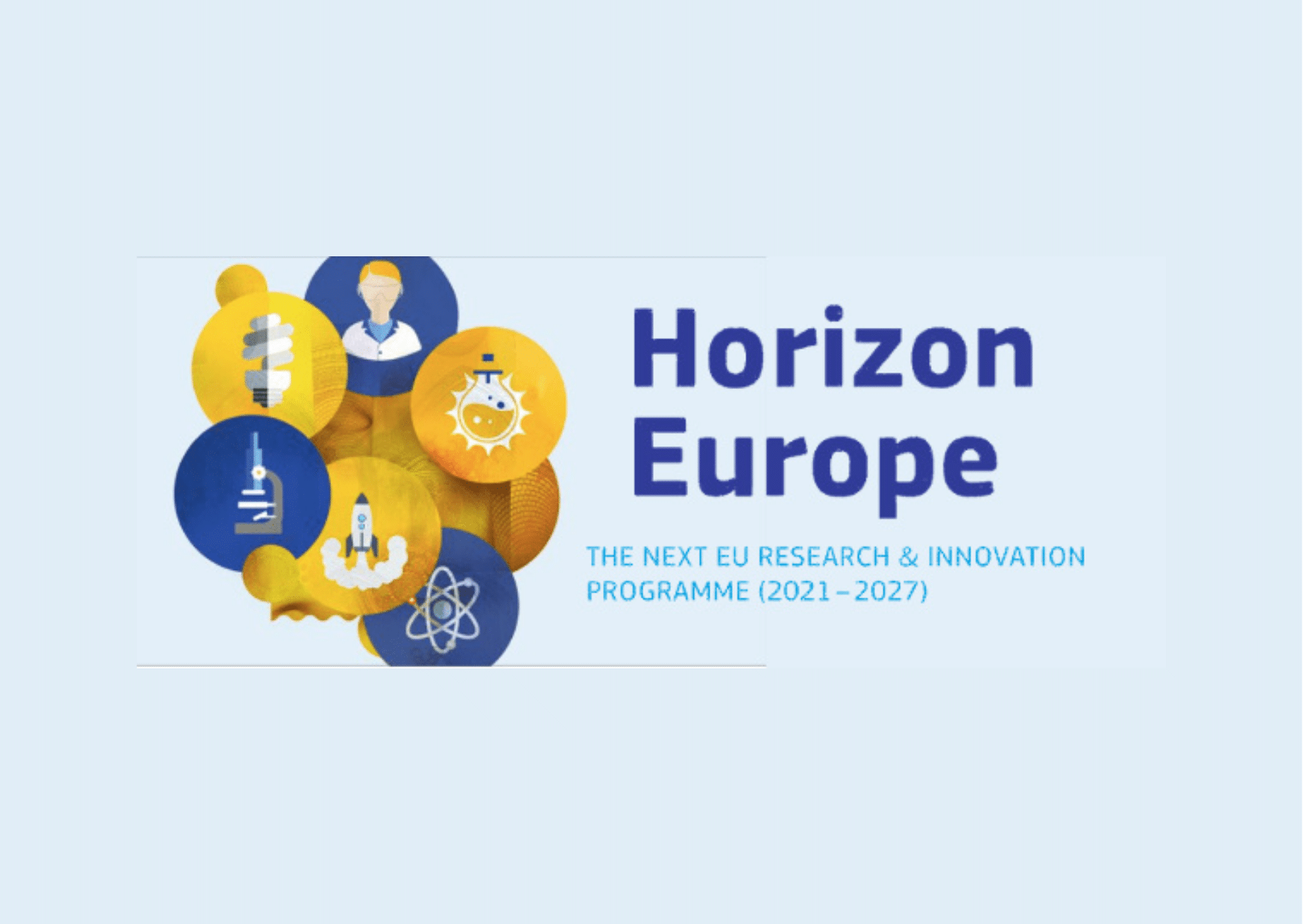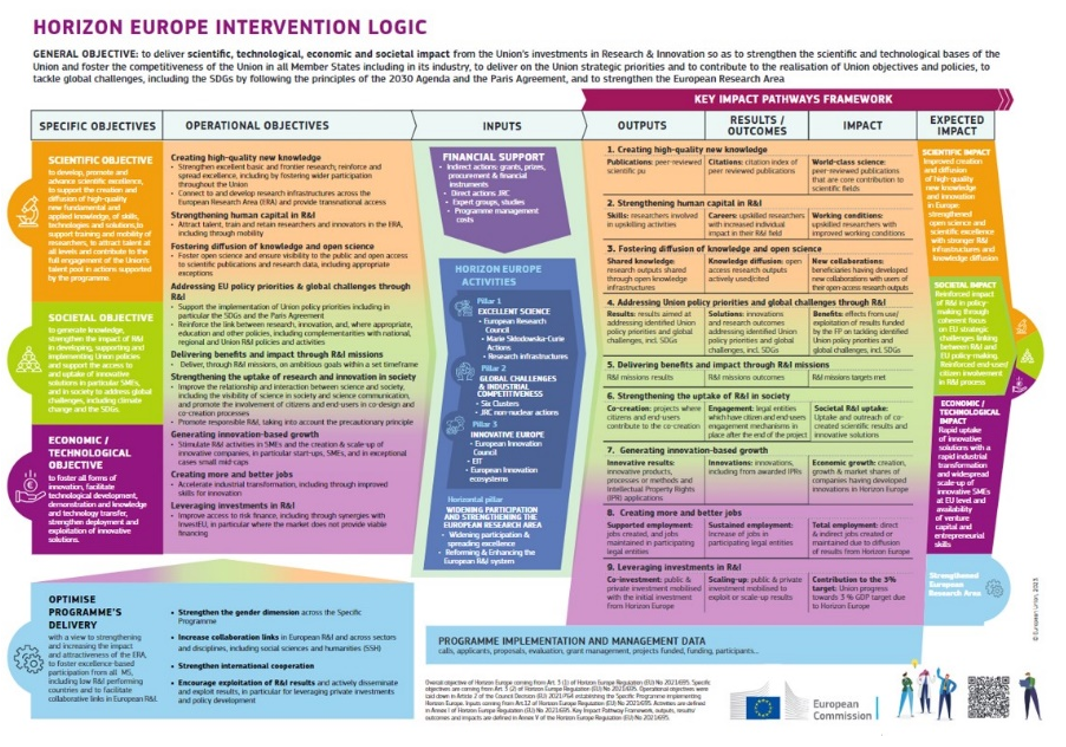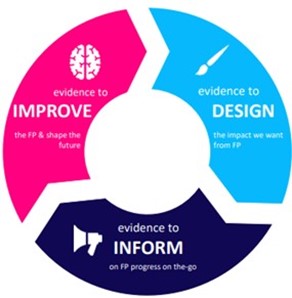Horizon Europe Monitoring and Evaluation Framework

date: 13/07/2023
A new staff working document (SWD) was recently published by the European Commission on the Evidence framework on monitoring and evaluation of Horizon Europe.
This document describes the intervention logic of Horizon Europe, explains the evidence that will be used for designing, informing, and improving the programme, including a comprehensive set of data and indicators.
The evidence framework on monitoring and evaluation of Horizon Europe responds to the requirements set out in the Communication on the performance framework for the EU budget under the 2021-2027 MFF for each programme to have a monitoring and evaluation framework documented. It was set up in line with the monitoring and evaluation provisions of the Horizon Europe Regulation. It draws from the lessons learnt from the Horizon 2020 mid-term evaluation and is built in accordance with the European Commission Better Regulation guidelines.

What's in there?
The framework encompasses indicators and data that will:
- help measure progress towards the programme's objectives
- help monitor the implementation and performance of the programme and provide an early warning on potential deviations
- allow to communicate and inform about the performance
- allow for deeper performance analyses in the interim and ex-post evaluations of the EU programme, the result of which will assist policy makers in designing evidence-based policies and taking informed decisions promptly even on emerging priorities

Horizon Europe key figures 2021-2022
With a total budget of EUR 95.5 billion, Horizon Europe raised a lot of interest, with high quality of applications.

- Higher success rates are observed but still 7 out of 10 high quality proposals cannot be funded.
- The geographic coverage of the programme is wide but low number of applications were received from the “widening” countries, despite higher success rates than under Horizon 2020
- Higher education institutes remaining the main beneficiary, but a considerable share of newcomers and close to 5000 SMEs are also involved in the programme.
- The programme funds more collaborative projects, with bigger grants and contributes greatly to the climate & digital priorities. EU Missions and partnerships are also on their way to tackle global challenges.
Those are just a few highlights of the first two year of implementing Horizon Europe. Find out more in the recently published factsheet.
